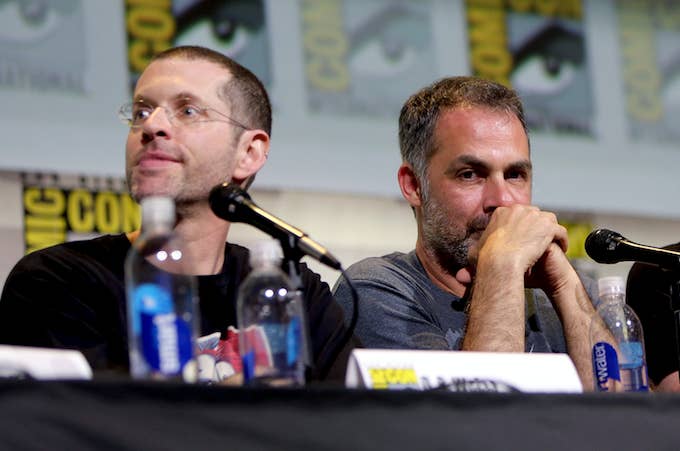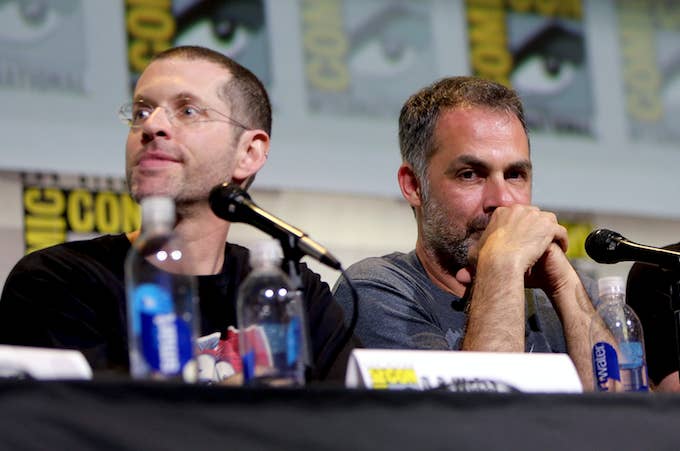
Among many things, Game of Thrones will be remembered for its many iconic battle sequences. Director Miguel Sapochnik (on the right in the photo above) is responsible for some of the show's biggest action-driven episodes including "Hardhome," "Battle of the Bastards," and "The Long Night." While his placement at the helm resulted in masterful television, he revealed he was not always in the good graces of showrunners D.B. Weiss (above left) and David Benioff.
IndieWire caught up with the director for its Filmmaker Toolkit podcast, where he spoke about his disastrous experiences while filming for the show. Originally brought on as a replacement director, Sapochnik left behind his passport on the way to Ireland, causing production delays, and was tasked with traveling between different sets that were miles apart with no guidance.
He went on to credit production designer Deborah Riley with keeping him afloat, saying, "And later on, I realized that was kind of their policy. It's like sink or swim, and I'd lost my passport on the way, so it’s like, 'This guy’s an idiot, let’s let him sink.'"
For the Season 5 episode "The Gift," his directorial debut for the show, Sapochnik recalled Benioff and Weiss saying it was "so self-[conscious] and we hate it basically." He added that there was a lot of creative pressure placed on him, saying, "I was visually policed for the first three months of my shoot and it made the creation of ‘Hardhome’ really difficult because I pissed them off." The latter episode, of course, is one of the all-time greats.
Luckily for the man who also helmed the series penultimate episode "The Bells," he was able to find his footing fairly early on. "The style that evolved from ‘Hardhome,’ that then was used subsequently as we went through the rest of Game of Thrones, was born in part out of weird necessity to find a functional and efficient way of shooting. And at the same time to do it without shaking things up, because that’s what Dan and David did not want."

